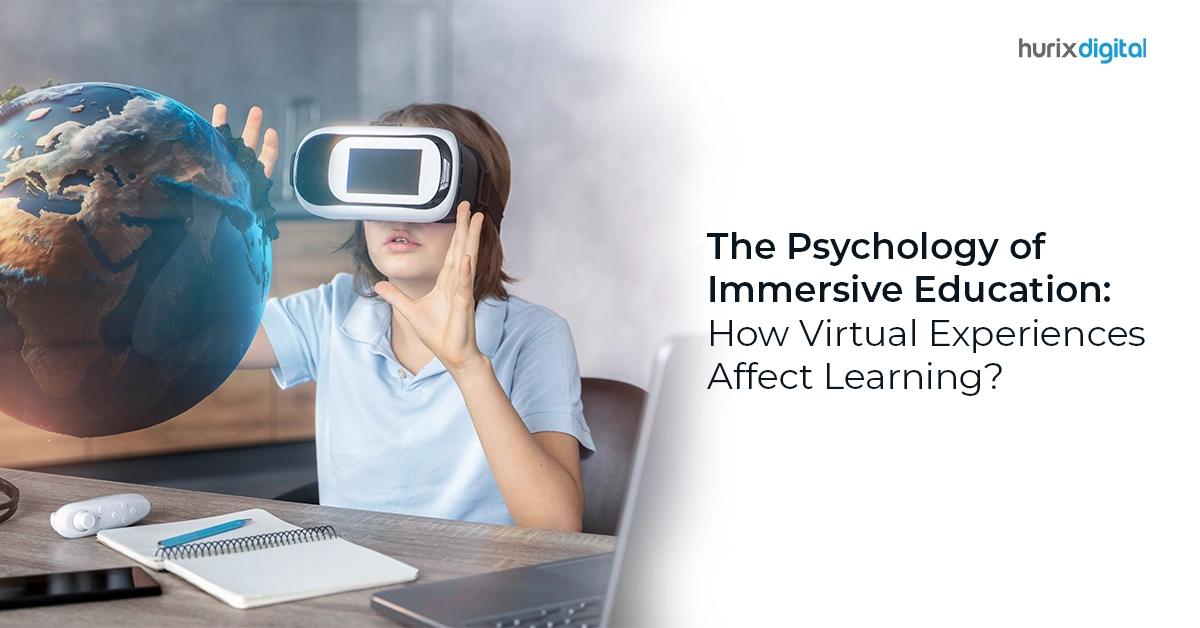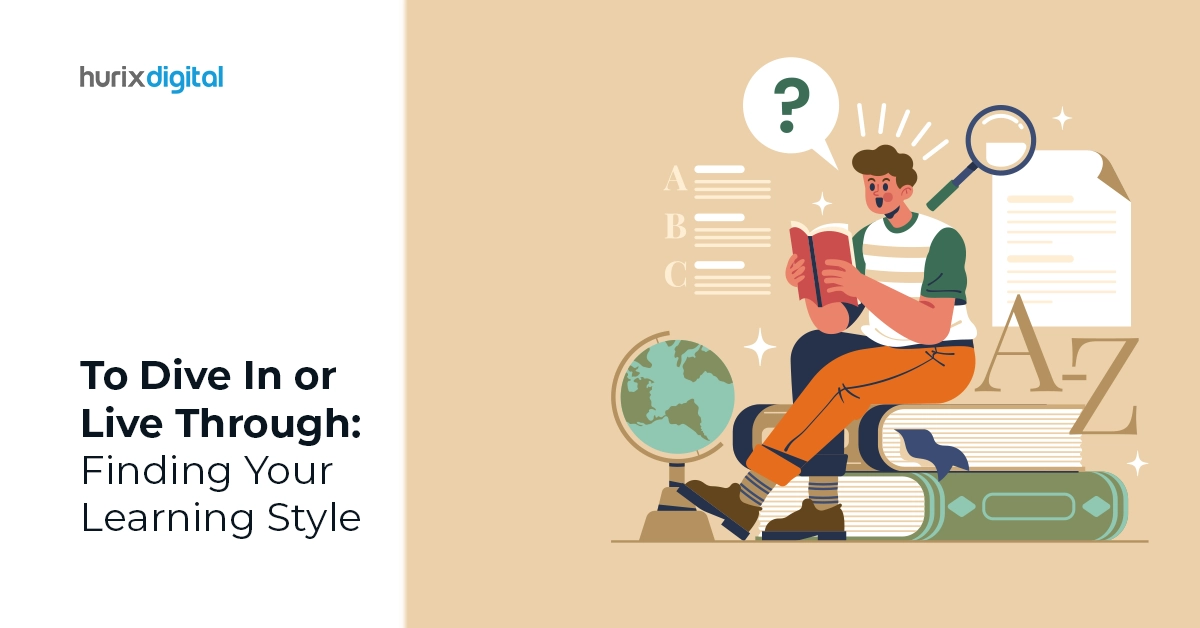Summary
This article provides a brief overview of immersive education and its psychological impact on learning. It is essential to understand the concepts of immersive education and virtual experiences to make the most of them. We have listed the four most impactful immersive learning designs and their delivery methods.
Technology is constantly helping education and learning evolve, and the rate of this evolution has gained tremendous momentum thanks to the concept of immersive education.
Immersive education is nothing short of cutting-edge, and investments are being made to incorporate it into becoming the future of learning. Education-specific global immersive technology was valued at $3.42 billion as of 2022 and is expected to grow to $28.7 billion by 2030.
To give you perspective on how to make the most of immersive learning methods, we will elaborate on the concepts, delivery methods, and their psychological impact on education. Let’s dive right in!
Table of Contents:
- What Is Immersive Education and Virtual Experiences?
- How to Deliver Immersive Education and Where They’re Used?
- What is the Psychological Impact of Immersive Education on Learning?
- Conclusion
What Is Immersive Education and Virtual Experiences?
Immersive education is relatively straightforward and involves immersing learners in a subject or experience to help them learn effectively. They aim to enhance engagement and deep understanding and foster an interactive and dynamic learning environment.
Virtual experiences are one branch of immersive learning involving cutting-edge technologies to merge the digital and physical worlds. They take advantage of space and dimensions to deliver a multi-sensory learning experience.
How are these aspects incorporated into education? Let’s learn a little more about the how and the where!
How to Deliver Immersive Education and Where They’re Used?
With the basic concept of immersive education in mind, it is essential to understand the various methods of delivering it and where it can be provided.
Here is a brief overview of the four most impactful immersive learning designs:
1. Immersive VR Learning
This learning method uses virtual reality (VR) to create digital environments and simulations. VR equipment transports learners to the heart of the subject they are learning, giving them an opportunity for deeper understanding and connections.
VR can be used for learning historical events, such as taking the learners to the War of Gettysburg, observing chemical reactions, and learning molecular chemistry.
2. AR Learning
AR learning methods use Augmented Reality (AR) technology to overlay digital elements onto the physical world. AR breathes life into abstract concepts, enhancing engagement and spatial understanding. AR learning is used to simulate processes without limiting a learner to the availability of resources.
An example of AR learning could be learning biology by dissecting a virtual frog on your desk, astrology by watching the planets orbit the sun in your living room, or even practicing speeches and languages that enhance social abilities.
Also Read: What is Immersive Learning? Implementation, Best Practices, Benefits
3. Immersive Laboratories
This concept combines physical equipment with virtual elements. This is a blended learning environment that offers the best of both worlds. Students can conduct real-world experiments while accessing additional data visualizations, simulations, and real-time feedback.
Immersive laboratory applications in higher education are immense. They are used to practice complex experiments in a risk-free environment, test prototypes, and even troubleshoot designs before physical construction.
4. Digital Twins
Digital twin learning is a new-age innovation that replicates real-world systems. With this, learners can experiment and analyze complex processes in a safe and controlled environment.
The scope of digital twins extends to educating learners and stimulating result-oriented project work. It can be used to study the performance of a system by manipulating variables or even tweaking different energy sources to see their impact on a power grid.
It boosts accessibility and motivation for students hoping to execute their creative ideas on live digital twins without impacting real-world system performance.
With the how and the where in mind, let’s dive into its impact on learning!
What is the Psychological Impact of Immersive Education on Learning?
All these cutting-edge immersive learning methods also have a significant and evident impact on the psychology of learning. The psychology of immersive education contributes directly to the benefits of learning and how virtual experiences affect learning.
Here are the five psychological impacts:
1. Presence and Engagement
Increased engagement and a psychological shift in presence are some of the most evident impacts of digital immersive technologies.
Immersing oneself in a VR environment, such as the Colosseum or a live historical war, skyrockets the levels of engagement. Virtually being there captivates a student’s attention, and the level of being present in such a surrounding has the potential to turn passive students into active explorers.
2. Cognitive Load
In traditional classroom education, learners often juggle multiple concepts to comprehend various processes. This often blocks up space in the mind.
With immersive education, a lot of this cognitive baggage can be offloaded. Its interactive and visual aspects help free up mental space for a more robust understanding of concepts.
Immersive education also shows changes in physiological behavior. While the benefits are that it helps develop muscle memory for performing tasks, the challenges would be tackling fatigue and stress levels.
To tackle its challenges, immersive education must be developed and delivered at an appropriate pace with the help of experts like Hurix Digital.
3. Emotional Quotient
With immersive learning, learning modules bring reality to the phrase “walking in another’s shoes.” Virtual experiences can also promote empathy and social-emotional learning (SEL).
For example, navigating virtual conflicts or experiencing historical injustices firsthand builds sensitivity and emotional quotient.
4. Experiential Learning
The traditional practice of learning by doing has always been beneficial in expediting learning experiences, but using the concept with immersive education takes it to new heights.
The psychological impact of being able to experiment in a safe, virtual environment fosters a “try and fail” ethos. Growing past missteps allows learners to build experience and confidence faster.
5. Self-Efficacy
Practicing complicated procedures broadens horizons and relieves a learner of self-limitations.
Especially for students from remote cities or with financial limitations, immersive learning methods can help their self-esteem, motivate their will to learn, and help them grow out of their mindsets. The feeling of self-efficacy is a profound psychological impact of immersive learning.
Also Read: Navigating Education: Exploring Immersive Learning vs. Blended Learning
Conclusion
Immersive technology in education is galloping fast towards becoming an integral part of the future of learning. With VR learning, virtual laboratories, AR learning, and the use of digital twins, the psychological impact of immersive education comes with tremendous benefits when methods are delivered at a tailored pace.
That’s why it is time to embrace immersive education and use it best with experts like Hurix Digital! Contact us now to get started!







